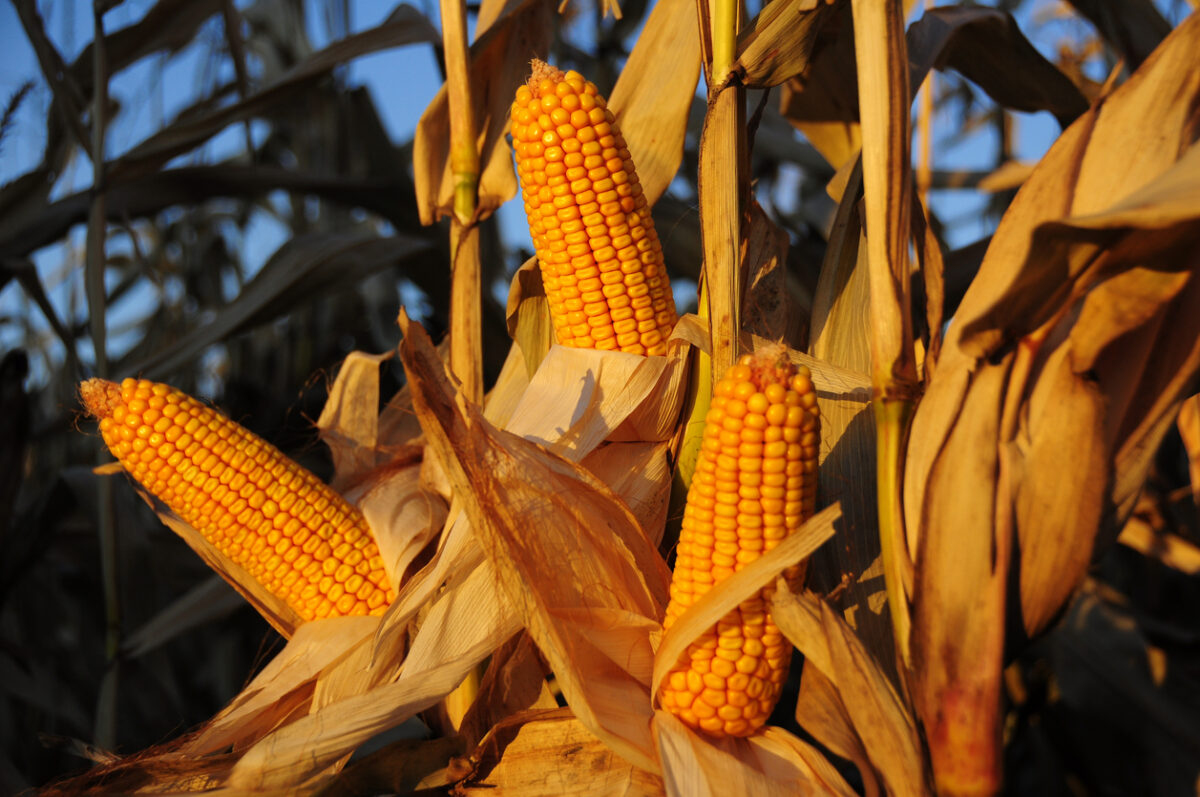From lupin to brassica: 6 novel crop innovations shaping the future of plant-based proteins
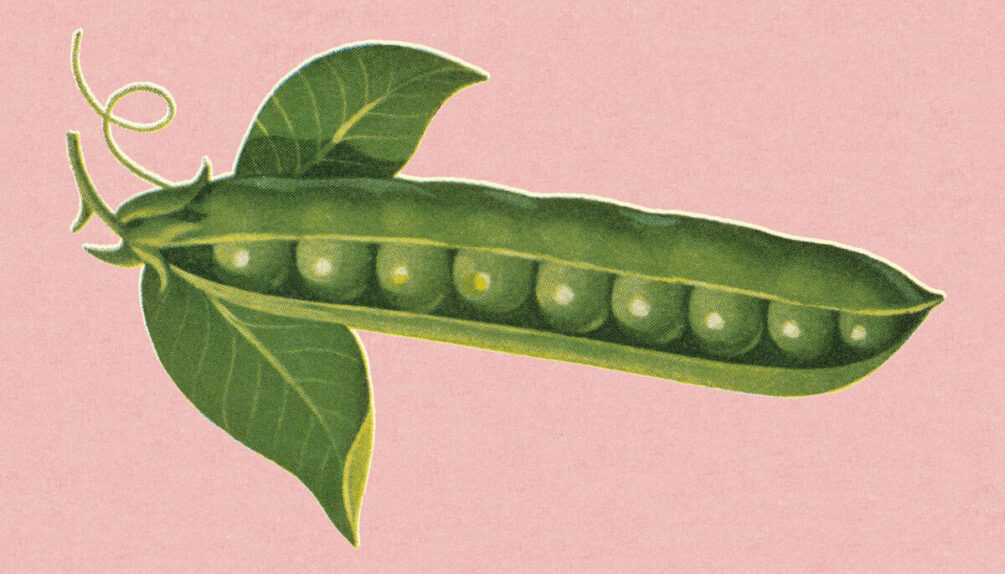
From meat alternatives to plant-based yoghurts, milks and powders, a wide array of products on the global market offer meat-free sources of protein, with some of the most common protein ingredients in these products including soy, rice, pea, and fava bean. The demand for plant-based proteins in food is soaring worldwide with the global market worth reaching $18.49 billion in 2022 and predicted to hit $40.58 billion by 2028. As ingredients manufacturer Kerry revealed at the Food Matters Live Inspiring Nutrition event earlier in May, finding new ways to produce protein has become a key trend for nutrition and health in 2023. Currently in the UK, large sums of investment are being directed towards the research and development of protein ingredients from new plant sources, as well scaling the production of well-known ones. We take a look at the latest innovative projects and how they might change the future of plant-based food.
Pea
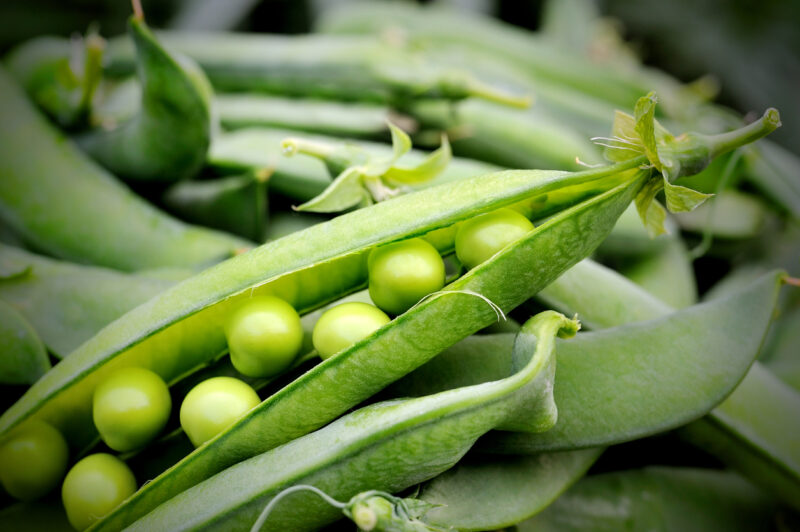
Pea protein is not a novel invention, but researchers have found a way to develop neutral-flavoured varieties
Pea protein is not a novel invention, but researchers have found a way to develop neutral-flavoured varieties
While pea protein currently on the market is not a novel invention, it carries an earthy or sometimes bitter flavour which doesn’t always appeal to consumers. Researchers working on a new project however have found a way to create neutral-flavoured varieties of the crop, and secured £1 million in funding earlier in June from the national research agency Innovate UK to develop the new crop type.
The ‘Pea Protein’ project is to be led by the research division of agricultural grass and forage seed company Germinal, Aberystwyth University’s Institute of Biological, Environmental and Rural Sciences (IBERS), the Processors and Growers Research Organisation (PGRO), and the John Innes Centre (JIC) in Norwich.
According to one of the scientists involved in the initial research, the gene for flavourless peas was already identified by scientists at the JIC in the 1990s, but work was paused at the time due to the lack of demand for the ingredient. With consumption of plant-based food on the rise, the breeding programme now has a renewed purpose.
One of the main goals of the initiative is to turn flavourless peas into suitable protein alternatives to soya. Soy protein is one of the most widely available plant-based proteins worldwide, but it is also an ingredient heavily associated with deforestation and is mostly imported from abroad. In 2021, most soya imports came from Argentina, Brazil, and Paraguay, followed by Canada, the USA, and Europe. However, only around 20% of soy is used to produce foods for human consumption, such as tofu, tempeh, flour, soy milk and oil, while the rest is used for animal feed.
According to the JIC, the pea varieties must meet market demands and national farmer agronomic requirements before they can start to be produced for commercial use.
Amaranth
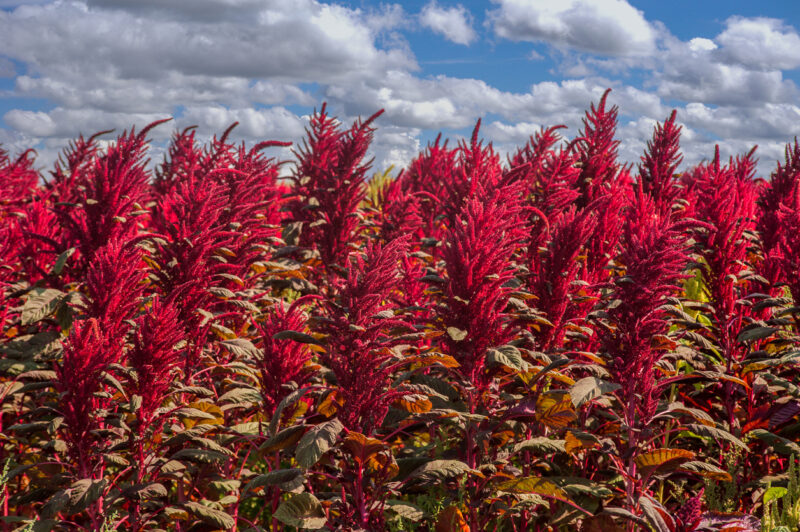
Amaranth is a gluten-free crop containing high amounts of protein, fibre, and antioxidants
Amaranth is a gluten-free crop containing high amounts of protein, fibre, and antioxidants
Another project which received funding from Innovate UK in the same month is Vertical Indoor Protein from Leaf (VIP Leaf), which secured a £750,000 grant to develop a new source of plant-based protein from amaranth using vertical farming facilities. London-based vertical farming company Vertical Future is leading the project, with the help of University of York, Innovate UK-funded agri-tech research centre Crop Health and Protection Limited (CHAP), Northampton based vertical farm Syan Farms, and plant-based food company Eat Curious.
Amaranth is a naturally gluten-free pseudocereal with a high protein, fibre, and antioxidant content. It is also a source of micronutrients such as manganese, magnesium, phosphorus, and iron. Though it is consumed regularly in regions such as Southeast Asia, Africa and South America, the grain isn’t yet commonly used in the UK.
The goal of the project is to develop a high-yielding, high-protein and high-quality amaranth crop which can be used in the production of meat alternatives, to help meet the growing demand for plant-based protein in the UK. As with the Pea Protein project, VIP Leaf plans to reduce the country’s reliance on imports of soy, but it also hopes to offer a cheaper alternative to pea protein.
Brassica
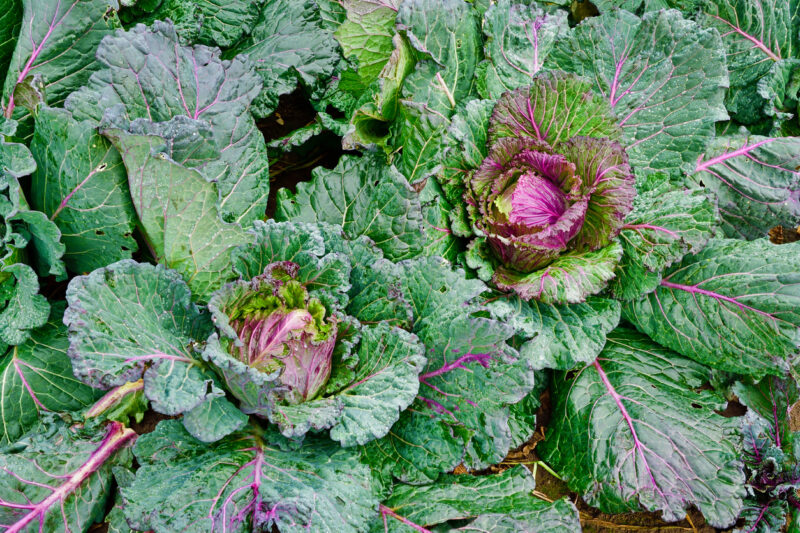
Naylor’s cabbage-based ingredient is said to have around five times more iron than pea or soy protein
Naylor’s cabbage-based ingredient is said to have around five times more iron than pea or soy protein
Another crop seeing investment for its potential as a good quality protein ingredient in the UK is brassica. Earlier this year, Naylor Nutrition – the plant-based ingredients branch of the British cabbage producer Naylor Farms – announced it had started building a €38 million (around £32.70 million) facility for the extraction of protein from cabbage and other brassica crops in Spalding, Lincolnshire. The company will use a gentle cold extraction process to produce the ingredient, which has around five times more iron than pea and soy protein, according to Naylor Nutrition’s CEO, Simon Naylor. As well as containing all nine amino acids, it is also said to be high in vitamins A, C, E, B2, B6, and Omega 3, and 6.
Lupin

While still uncommon in UK diets, lupin is consumed regularly elsewhere in the world in Italy, Spain, Greece, Jordan and Egypt
While still uncommon in UK diets, lupin is consumed regularly elsewhere in the world in Italy, Spain, Greece, Jordan and Egypt
Earlier this month, CHAP, Phytoform Labs and Soya UK Limited announced they were teaming up to carry out a two-year study on the feasibility of using lupin as a sustainable plant-based protein ingredient. Using funding provided by Defra through its Farming Innovation Programme, as well as Innovate UK’s Transforming Food Production challenge, the project will assess whether genetic breeding techniques can be used to turn the lupin bean into a viable new protein source.
The lupin bean is high in protein and fibre and low in carbohydrates and fat, but its current protein profile is not good enough to make it a suitable competitor on the plant-based protein market. As Nicolas Kral, co-founder and CTO at Phytoform Labs explained in a statement: “Lupin has a staggering potential, but genetic improvements are needed for it to be a competitive protein commodity. Thanks to the funding from Defra, we can assess the feasibility of novel breeding technologies to improve lupin genetics for sustainable protein production in the UK.”
As well as using genetic editing to enhance specific traits in the lupin bean and boost its protein profile, the project will carry out regenerative agriculture practices to decarbonise lupin production and evaluate sustainability metrics. Researchers also plan to involve farmers and growers in field trials, to help them better understand how to produce high-yield lupin crops with a suitable protein profile. While for now, lupin is uncommon in the UK diet, it has been eaten in other countries for centuries. The earliest record of the bean is from the Twelfth Dynasty of Ancient Egypt, where seeds were found in tombs. The crop was also used in Ancient Rome, where it was grown widely across the Roman Empire. Today, lupins feature in the diets of several Mediterranean countries including, Italy, Spain, Portugal, and Greece, as well as Jordan and Egypt in the Middle East, where they are a popular street snack.
Potato
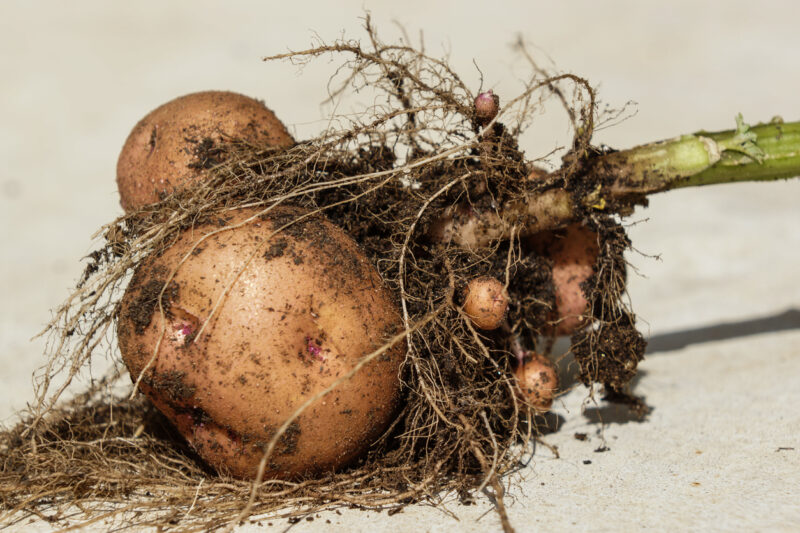
Branston’s new facility will house a gentle extraction technology which can source a functional, clean-label protein from potatoes
Branston’s new facility will house a gentle extraction technology which can source a functional, clean-label protein from potatoes
In April 2022, one of the country’s leading potato suppliers Branston Potatoes finalised the construction of its new £6 million Lincolnshire-based facility. The building is designed to scale a gentle extraction technology that can source protein from potatoes, which can then be used as an ingredient in vegetarian and plant-based foods produced in the UK. The company is working alongside innovative solutions firm B-hive, which has developed the extraction technology, to create a new, clean-label and functional vegan protein. Potatoes are grown in great abundance in the UK due to the country’s suitable climate, and the technology could allow potatoes to become an important protein source for plant-based food producers in the future.
Fungi
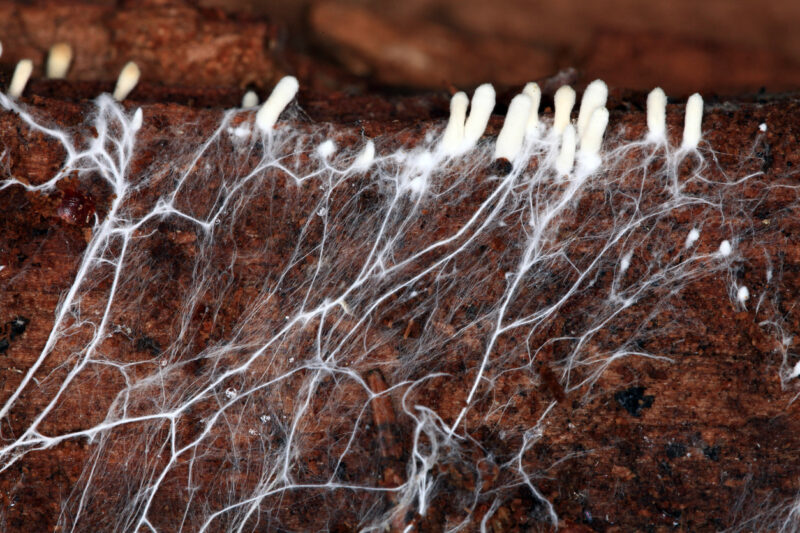
Mycoprotein is obtained from the microfungus Fusarium venatum, which can be found in soil
Mycoprotein is obtained from the microfungus Fusarium venatum, which can be found in soil
Mycoprotein – a single-cell protein derived from the microfungus Fusarium venenatum through fermentation – is hardly a novel plant-based protein ingredient in the UK. Quorn first launched mycoprotein-based products onto the country’s shelves in 1985 and can be bought today from 15 retailers. While Quorn products have been around for a while, it is possible more foods made with mycoprotein will soon be available from different brands. Earlier this year, the business’s parent company Marlow Foods developed a new ingredients division to allow food and drink manufacturers to use its ingredient in their applications. The Marlow Ingredients branch will work towards making mycoprotein available as an ingredient in Europe first, followed by the rest of the world.
Several start-ups are also developing fungi-derived proteins for plant-based meat applications such as Mycorena, ENOUGH, Mush Foods and Nature’s Fynd, to name a few. At the end of last year, these food companies teamed up with knowledge partners ProVeg International, the Good Food Institute and the Alternative Proteins Association to found the Fungi Protein Association – a new trade group working to boost the production of sustainable mycoprotein ingredients.
When might we see these proteins?
While innovation is progressing at a fast pace in the UK, novel foods authorisation is still a barrier for some emerging plant proteins. Mung bean protein for instance, has been used across Asia in food applications like cakes and savoury snacks, and was authorised as an ingredient in the United States in 2017. It only just received EU regulatory approval from EFSA however in April 2022, after plant-based egg producer Eat Just applied for regulatory approval for the sale of its mung bean-based JUST Egg in the region. According to UKRI, under current regulations in the UK, the extraction process to source proteins from crops could cause an ingredient to be given novel foods status, which would delay getting it to market. It is expected however that legislation procedures will soon evolve enough to speed up the process of granting food safety status to plant proteins.





